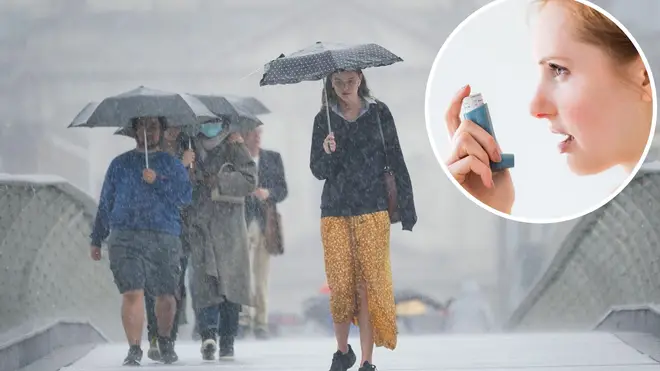
Iain Dale 10am - 1pm
2 August 2023, 22:22

A "thunder fever" warning following recent storms in the UK has been issued for people with asthma and hay fever.
The effect, which comes from high winds bringing more pollen into the air, could trigger asthma symptoms if the particles get into a person's airways.
Yellow weather warnings were in place across England and Wales on Wednesday as the Met Office warned an "unseasonably deep area of low pressure" would bring strong winds and heavy rain.
It warned gusts of up to 60mph could hit coastal areas along the Channel.
Read more: Exact date 32C heatwave will hit UK signalling end to wet and windy summer
That strong wind could have an effect on people with breathing conditions by introducing more pollen to the air.
Dr Neel Patel, a GP at Lloyds Pharmacy Online Doctor, said: "The air can feel very close and humid before a storm. For people with asthma, this can trigger a tight chest, cough and difficulty breathing."
Last year, Allergy UK revealed the signs of "thunder fever" and suggested ways potential sufferers could keep their risk of experiencing it down.

It said people with hay fever would feel typical symptoms such as sneezing, having a runny nose or suffering from itchy eyes.
Hay fever can also cause asthma to get worse.
Asthma and Lung UK has also said that having a very tight chest, coughing and wheezing are among the symptoms, as are breathlessness and faster breathing.
Read more: July was one of wettest on record, after warmest-ever June
Allergy UK recommended saying indoors before, during and after a storm and to keep windows closed, if possible.
Wearing a mask can reduce exposure to pollen if you have to go out, while you should avoid anything that you know can worsen symptoms, such as alcohol.
It recommended keeping an inhaler close by and having an asthma action plan in case conditions worsen.
You should also keep taking medicine even if your symptoms don't appear to be getting worse.